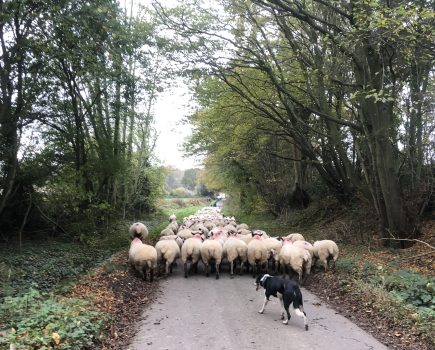Ok, so as someone who has spent too many hours wielding a pair of Felcos and a small pruning saw trying to control canker in a Gala orchard, and has the resulting repetitive strain injury to prove it, the gene editing news has been nothing short of amazing, frankly. As farmers, we know that there are certain diseases for which we never quite get control, some things that, once they get a grip, signal the end of financial viability for a crop and for which the required chemistry is becoming all too scarce.
But how do we tell the public? How do we support those who need to manage this story and educational work without feeding the fervent anti-chemistry, anti-science and anti-establishment lobby that thinks producing food should be a charitable act and not a business? How do we prevent this turning into the monumental nightmare that the anti-GMO campaign has delivered, halting a lot of progress in a scientific breakthrough that reduces the use of the chemistry they distrust so much?
Should we be looking to treat this like a brand development project? If you want to bring a product to market, you consult with experts in branding, you conduct market research into people’s perceptions, gauge the mood of the consumer, test messages and imagery and refine your product launch.
Should we be using the medium of popular media? Should we be telling the story of how this editing (not modification, nothing fishy about these genes) is going to remove chemistry from the environment? Should we be open about the costs of medicating our crops, about the realities of how we bring them their fantastic fresh product and the pressures of producing it so close to home?
Perhaps we should focus on the quality story; the reduction of waste by the removal of the gene that delivers vulnerability to scab? A greater proportion of the crop, every year, (not sprayed every time the mills period alarm goes off) would make it into someone’s diet and it will not have shipped from thousands of miles away. Isn’t this, perhaps, one of our greatest arguments – not importing environmental damage, water, dubious employment practices and regulation of plant protection chemistry by growing more here and being more food secure?
Who do you think should be responsible for creating trust in the application of gene editing to plant breeding in the UK? Is it the firms involved, the propagators who sell to growers? The research bodies funded by government (because this one hasn’t got a Monsanto label…)? Is it the Government that should spread the word (and will that help)?
Should we be transparent to create trust, or should this be down to labelling? Do we create a Gala+, new and improved, still nutritious, still hydrating, still good for lowering your cholesterol levels but now without a dreadful disease that ruins orchards and stops growers delivering what the consumer says they want – fresh, nutritious food, grown to a high standard in environmentally friendly and sustainable ways?
So I’m throwing the questions out there. There is a consultation happening on this right now. If you have a view, I would be pleased to connect you with the research team. For what it is worth, we need this science yesterday, but our greatest challenge is those that believe we are going to damage the environment and the human population irretrievably by its implementation.







